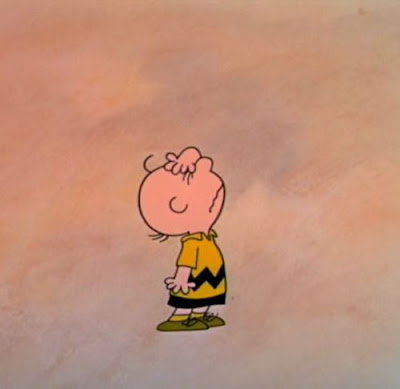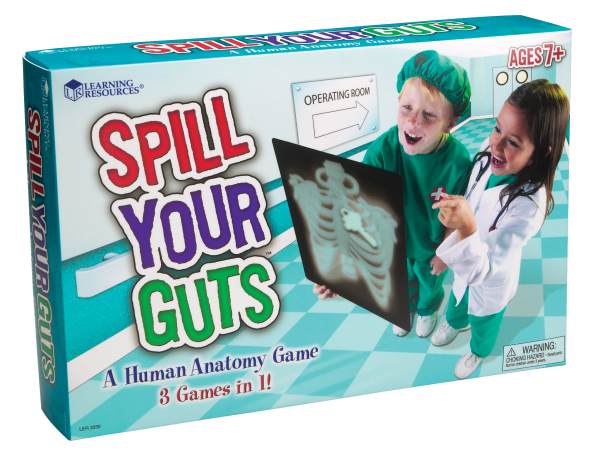MONEY TREES, NEW THEORIES AND BROOKE SHIELDS
1800 words / 9 minute read
At no point during the (nearly) five years since my diagnosis have I let myself get sucked into comparing myself to others and thinking “why me?”.
Had people not asked me whether it's something I think about, I doubt it would have even occurred to me to do so - even if it did, allowing that kind of mindset to take root is a sure-fire way to depression and the Victim Mentality if I've ever heard of one.
Incidentally, I had to consciously reverse years of automatically answering the question "How are you?" with a cheery, "Fine, thank you!" when in hospital since, telepathy not having caught on as a diagnostic tool, that was the only way the doctors had to gauge my level of suffering and prescribe me the good pain relief.
In fact prior to this (irritatingly terminal) illness, I was rarely under the weather at all, taking my all-round general good health for granted. Though that is what you imagine someone barely out their twenties should be able to do.
Although health-conscious in terms of fitness, I certainly wasn't a health freak in the paranoid sense, trusting that my genuine enjoyment of good things like exercise and veggies combined with a lack of any real "food vices" would be all I needed to remain in good health.
And though I was partial to beer, I didn't drink every day, and I gave up smoking young enough (I figured) for it not to have any lasting impact on later life. But for a long time I rarely passed up the chance to party if I didn't have the constraints of work the following day (“a weekend wasted is never a wasted weekend” is how the old saying goes) and I wonder if that sewed the seed of things to come.
Ironically, in the period immediately leading up to my diagnosis, I was actually in the best shape of my life. I'd given up the fags for probably 7 or 8 years by that point, ditched nightclubs for a running club (smashing out a 13 mile half-marathon race in 98 minutes a mere six months before that fateful D-day) and through successfully managing my symptoms by trial and error to get by with everyday life, had the unintended positive effect of curtailing my drinking to clear spirits only, thus cutting my alcohol consumption right down.
YOUTHFUL ARROGANCE AND A LACK OF GREEN FINGERS
I doubt I'm the only one for whom the arrogance of youth created a belief in their own invincibility but any temptation I might have had towards over-indulgence was tempered by the simple fact that it's nigh on impossible to grow a money tree.You probably also lack the necessary skills to harvest cash from plant-life so may have also found that working full-time is useful for further tempering any urges towards overindulgence during the week and so fully embracing weekend excess.
Although very much a "ruin / recovery" cycle, I did my best to ensure I bounced back before the party continued once more. Both-ends candle-burning was something I did my best to avoid, exercising on Mondays if ever possible (to start the week off properly) and holding off from alcohol until Thursday or Friday if I could.
This lifestyle seemed to work very well and I fully embraced it from my late teens till my early thirties without any real thoughts towards the future. But as the (somewhat blunt) expert being interviewed for this Vice article states "the things that predict whether you're going to die young aren't whether or not you do a bit of coke at the weekend or have the odd spliff, it's whether you're fat, whether you smoke, your family history and your socio-economic status."
Hmmmmm - so maybe the strong constitution on which I had prided myself when young was part of my undoing. The alarm bells that would sound in other people (generally before they make “never again” style promises to themselves) were strangely silent in me.
It wasn’t that I ignored them and ploughed on through (alright, sometimes - but rarely), it was more that the bell didn’t even need to chime because my body was never telling me that I had "overdone it". We all know people who regularly hug the toilet bowl for hours but that was never me, which I thought was a good thing at the time.
Had those alarm bells been a bit more sensitive, would things have turned out differently? Impossible to say of course and since we are close to a “Why Me?” line of questioning, perhaps a train of thought that should be avoided.
WHO SAID ANYTHING ABOUT LUCK?
Although I had never wallowed in the “Why God, why?” thinking, nonetheless I had a theory as to what had caused my illness which I brought it up with my surgeon, asking if I was in this position because I had drank too much booze in my twenties.
His answer (that “the whole medical profession would have bowel cancer if that was the case”) was a good one, designed to reassure me that I wasn't to blame - but to be told that my developing bowel cancer at such an early age was the result of “bad luck” didn't really satisfy as an answer.
I would almost prefer to be at fault and take responsibility for my actions than to be the victim of bad luck (or any kind of victim actually).
But, having done some further research since that conversation, his statement makes sense to me now, because in order for someone to develop a full-blown malignant tumour in their bowel, those cells must make six different changes in order, none of which are set in stone.
The presence of a benign tumour in the bowel can mean you're one cell-mutation away from becoming the host to something with murderous intentions, but still your fate is not yet sealed. Just as only a small number of moles becomes carcinomas on your skin, not every cell mutation leads to malignancy elsewhere in the body.
This means its route to murder/death/kill status could be scuppered at any time, like an accumulator bet with a really dark reward that you don’t really want.
WE ALL GET CANCER AT SOME POINT, IT’S ALL DOWN TO HOW YOU HANDLE IT
Now I'm no medical professional, but having had plenty of opportunity to read up on my specialist subject, I believe it’s here that the lifestyle factors come into play.
Continuing the accumulator analogy, smoking, drinking and processed foods are like little cheats on your betting slip that keep you in play. Without using them, you might still have guessed all the right results and swept the pot, but the chances of doing so would have been far slimmer.
I may be way off with this theory, but what if none of the things we consider carcinogenic (such as unhealthy habits and lifestyle choices) cause cancer by themselves? I know this sounds backwards, but what if they're not even “triggers” that directly cause a cancer to develop?
I realise there's a reason the origins of the word "carcinogenic" break down into "that which produces" and "cancer" but I wonder whether we've always been coming at this problem from the wrong direction.
As I write in this blog post, what we call "cancer" starts as unchecked cell growth and mutates from there. Due to the sheer number of cells in the body it's not inconceivable that these mutations will happen to every single one of us in our lives, and they are held in check by the immune system which stops the rogue cells from running amok.
Since 1 in 2 people develop full blown malignancies at some point in their lives, perhaps this is something that is happening to our bodies constantly but we are oblivious because most of the time the immune system easily sends it packing.
What excess weight, smoking or an unhealthy diet will do is divert your body's resources from those attacks to dealing with unwanted toxins, preventing the immune system from doing this job efficiently, like the overworked foreman on an industrial plant might miss a pressure gauge hitting the red if he has to constantly handle problems in other sectors.
Maybe all the things that we call carcinogens have the effect of constantly diverting our poor immune system's attention to the area that they affect, so it makes sense they are always being linked to cancer if we consider they take resources from dealing with other potential problems in that area.
A NEW DIRECTION?
Assuming my theory holds water, should those in charge of the message consider changing direction?
Right now, there's no clarity. It's as if people consider cancer to be a bit like an STD - by being naughty or careless you may raise your chances of catching it, but then the odds are you probably still won't, so why worry?
Sorry to burst your bubble there bud, but since cancer isn't a virus, things don't work that way. If cell mutations happen all the time, your immune system is working to fight off cancer on a pretty constant basis. By ingesting carcinogens you deliberately inhibit its ability to stop a malignancy developing, which sounds crazy if you think about it that way. Why would you do that to yourself?
If I am on the right track with this, rather than a message formed of vague notions of a some nasty illness that may happen to you if you carry on doing naughty things, by shining the light from a different direction, people would look at their everyday consumption in a whole new light.
I'm not advocating a nanny-state here: I believe it’s up to the individual what they choose to put into their bodies, but it should be with the best possible up-to-date information and the clearest message, rather than the over saturation of information and confusing legislation that we currently have.
No wonder people are mixed up when booze and fags are listed alongside plutonium on this list of carcinogens, yet they can purchase those substances perfectly legally in the supermarket.
Even more perversely, cannabis, which you won't find on that list and has reputed cancer fighting properties remains illegal and its supply to those who may benefit controlled by criminals.
Perhaps it's time for a different message - one that is slightly more tangible than “smoking kills” or “drink responsibly” - and I'll leave the last word on that subject to Brooke Shields, who concisely makes the point in less than 15 what's taken me 1800:
Thanks Brooke - and thank you for reading!
Much love
Stage-4-in-Sinville
theccconline.blogspot.com






Comments
Post a Comment